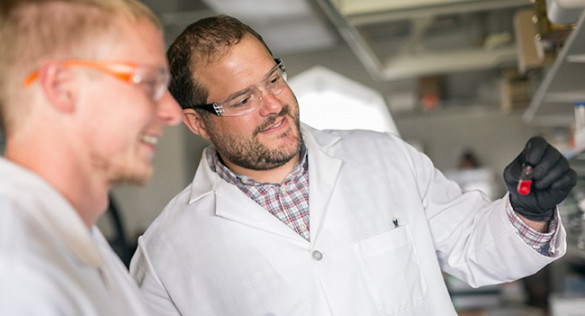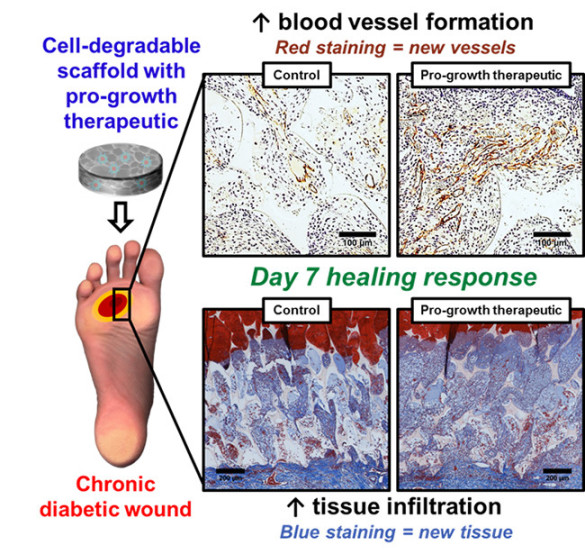
Craig L. Duvall has received the Presidential Early Career Award for Scientists and Engineers, the highest honor bestowed by the U.S. government on outstanding scientists and engineers early in their research careers.
The associate professor of biomedical engineering at Vanderbilt University is one of 102 scientists and researchers nationwide selected this year to receive the PECASE award, the White House announced last month.
 The National Institute of Biomedical Imaging and Bioengineering, a branch of the National Institutes of Health, nominated Duvall for his research in biomaterial and drug delivery technologies applied to tissue regeneration. Specifically, the PECASE Award is associated with his work aimed at enhancing repair of skin wounds that do not heal on their own, a common side effect of diabetes that can lead to infection and limb amputation.
The National Institute of Biomedical Imaging and Bioengineering, a branch of the National Institutes of Health, nominated Duvall for his research in biomaterial and drug delivery technologies applied to tissue regeneration. Specifically, the PECASE Award is associated with his work aimed at enhancing repair of skin wounds that do not heal on their own, a common side effect of diabetes that can lead to infection and limb amputation.
The object of Duvall’s current NIBIB grant, titled Substrate Mediated siRNA Delivery from Scaffolds to Promote Wound Repair, is to explore the effectiveness of a special biodegradable polymer to promote wound healing. This material has two basic functions.
First, it serves as scaffolding that supports new tissue growth and gradually breaks down as the healing process proceeds. Most biodegradable materials that have been experimented with in the past break down in the presence of water, which is always present in the body, but the material Duvall is studying breaks down as a result of a cellular process that is directly linked to the healing process.
“Materials that degrade as the result of hydrolysis do so at a rate that is independent of the healing process. However, the rate of healing can vary widely depending on the circumstances. If the scaffolding breaks down too fast, it can leave voids in the wound that can cause serious problems,” said Duvall. “The rate at which the material we are using degrades is determined by the rate of healing so this does not happen.”
Second, the material serves as a “depot” for releasing biomolecules that promote the healing process. Past efforts to promote wound healing in this fashion have relied on individual growth factors, molecules that promote specific aspects of the healing process, such as cell proliferation or blood vessel formation. Duvall is using a genetically engineered molecule called silencing RNA that triggers a cellular switch which turns on a wide array of pro-healing genes, including those that promote cell proliferation, blood vessel formation and blood vessel stabilization.
“We hope this will produce a more comprehensive response, one that recapitulates the normal healing process,” said Duvall. “We are targeting this technology for really traumatic wounds, such as those in diabetics and to treat the severe pressure wounds that can develop in paraplegics and on bedridden patients,” he said.

The PECASE Award will extend his current four-year grant, which is funded for $1.37 million, for an additional year. Duvall plans to use the additional funds to do the advanced preclinical work required so that he will be in a position to begin human clinical trials soon after the project’s conclusion.
The presidential awards were established by President Clinton in 1996 and are coordinated by the Office of Science and Technology Policy within the Executive Office of the President. Awardees are selected for their pursuit of innovative research at the frontiers of science and technology and their commitment to community service as demonstrated through scientific leadership, public education or community outreach.